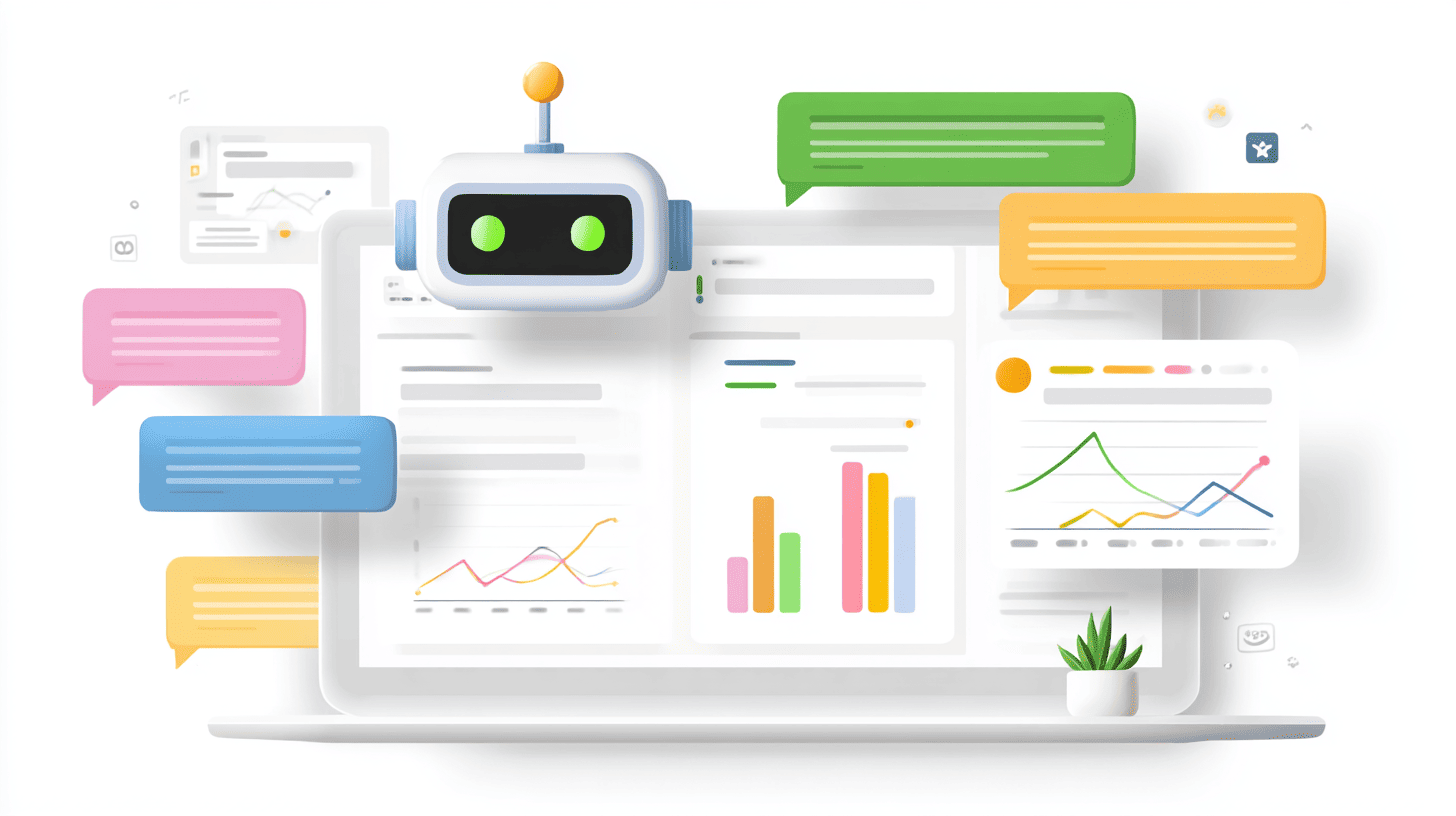Transform Your Travel Experience: Practical AI Applications in the Industry
Marek Majdak
Sep 02, 2024・7 min read
Table of Content
Revolutionising the Travel and Tourism Industry with AI
How Generative AI Works
AI in Booking and Reservations
Enhancing Customer Service with AI
Personalised Travel Experiences
Overcoming Language Barriers
Streamlining Operations in Travel
AI in Luggage Management
Optimising Flight Paths with AI
Business Impact of AI in Travel
Marketing and Revenue Management
Future of AI in Travel
Sustainable Travel Solutions
AI and Virtual Travel Experiences
FAQs
The travel industry is undergoing a remarkable transformation, thanks to the integration of artificial intelligence (AI). These technological advancements are not just futuristic concepts but practical applications that are reshaping how we journey across the globe. AI is driving innovation not only in the travel industry but also across the broader tourism sector, modernizing services and operations industry-wide. From enhancing customer service to streamlining operations, AI is making travel more personalised and efficient than ever before. In this piece, we will explore how AI is being harnessed to elevate the travel experience, offering innovative solutions that are both practical and accessible. Join us as we delve into the ways AI is revolutionising the industry, providing travellers with smarter, smoother journeys.
Revolutionising the Travel and Tourism Industry with AI
How Generative AI Works
Generative AI is reshaping the travel and tourism industry by harnessing the power of machine learning algorithms to create new, highly personalized travel experiences. Unlike traditional AI, which simply analyzes data, generative AI goes a step further by generating new content and recommendations that closely match a traveler’s unique preferences and travel history. For example, a travel company can use generative AI to sift through vast amounts of customer data—such as previous bookings, favorite destinations, and activity choices—to craft a personalized day-by-day itinerary tailored to each individual. This technology also enables travel businesses to predict emerging market trends, allowing them to offer relevant destinations and experiences before they become mainstream. By leveraging artificial intelligence in this way, the tourism industry can deliver truly personalized travel plans that adapt to changing user preferences, ensuring every journey feels custom-made. As generative AI continues to evolve, it will play an increasingly vital role in helping travel companies anticipate customer needs and create memorable, one-of-a-kind adventures.
AI in Booking and Reservations
AI has significantly improved the booking and reservation process within the travel industry. Intelligent algorithms now tailor search results based on individual preferences and past behaviours, offering tailored recommendations. AI streamlines the travel booking process by automating reservations for flights, accommodations, and other services, making it more efficient and user-friendly. This personalisation makes it easier for travellers to find the perfect accommodation or flight options quickly, while also delivering relevant offers that match their interests. Moreover, AI-powered chatbots, including virtual assistants and virtual travel assistants, are available around the clock to assist with queries, handle bookings, and manage cancellations, providing seamless customer service. These virtual assistants can process requests instantly, often resolving issues that would typically require human intervention. AI tools also assist with trip planning by providing personalized suggestions and integrating planning features directly into booking platforms. Furthermore, predictive analytics enable airlines and hotels to adjust pricing dynamically to maximise occupancy and optimise revenue, helping travellers find the best deals. AI’s integration into booking and reservation systems is powered by advanced ai tools, which enhance efficiency and user experience. Travel agencies are increasingly leveraging AI to improve customer service and streamline booking processes. AI travel assistants serve as digital platforms that further simplify planning and booking. Additionally, AI enhances customer loyalty programs by offering tailored rewards based on individual preferences and booking history. These innovations help meet and often exceed customer expectations in booking. Overall, AI’s integration into booking and reservation systems has streamlined processes, saving time and effort for both service providers and customers while enhancing the overall travel planning experience.
Enhancing Customer Service with AI
AI is transforming customer service in the travel industry by providing more efficient and personalised interactions. Virtual assistants and chatbots, powered by AI, are available 24/7 to assist travellers with inquiries, booking modifications, and more. These tools can handle multiple requests simultaneously, reducing wait times and improving response rates, thereby enhancing customer services in the travel industry. AI-driven chatbots improve customer communication by providing real-time, consistent, and personalized responses to guest inquiries. With natural language processing, chatbots and virtual assistants can understand and interpret human queries naturally and effectively. AI-powered chatbots are also integrated with social media sites such as Facebook Messenger, WhatsApp, and Viber, expanding customer support channels and making assistance more accessible.
AI systems also analyse customer data and user behavior to predict needs and preferences, allowing service providers to offer customised recommendations and solutions. For instance, AI can suggest activities or dining options based on a traveller’s past choices or interests. AI uses data analysis to improve service quality and provides valuable insights from customer interactions, helping companies refine their offerings. Additionally, sentiment analysis tools help companies gauge customer satisfaction and address potential issues proactively. AI agents act as advanced, proactive tools that can automate and support various travel-related tasks, further enhancing customer support by providing faster and more efficient solutions. This technology ensures that service quality remains high, even during peak travel periods. By incorporating AI into customer service, travel companies can foster stronger relationships with their clients, ensuring a more satisfying and memorable travel experience.
Personalised Travel Experiences
AI is at the forefront of creating personalised travel experiences, tailoring trips to fit individual preferences and interests. By analysing vast amounts of data with advanced ai algorithms, AI systems can offer personalised customer experiences and customised itineraries that reflect a traveller’s unique tastes, be it in accommodation, activities, or dining options. For instance, AI can suggest local attractions or hidden gems based on past travel history or by analyzing the user's preferences and stated preferences. This level of personalisation enhances the travel experience by ensuring that each journey feels unique and special. Moreover, AI-driven platforms can adjust recommendations in real-time, responding to changing circumstances or new interests. This dynamic adaptability allows travellers to enjoy a more fluid and spontaneous adventure. In essence, AI transforms the generic travel experience into a bespoke journey, providing travellers with a sense of discovery and satisfaction that aligns with their personal desires. This shift towards personalised travel marks a significant advancement in how we explore the world.
Overcoming Language Barriers
Language barriers have long been a challenge for travelers exploring new destinations, but AI-powered tools are making these obstacles a thing of the past. Virtual travel assistants now offer real-time language translation, enabling seamless communication between travelers and locals, whether it’s asking for directions, ordering food, or navigating transportation. These AI-powered solutions not only translate spoken and written language instantly but also provide cultural context, ensuring travelers feel confident and informed wherever they go. Additionally, travel companies are integrating multilingual AI chatbots into their customer service platforms, allowing them to assist travelers in multiple languages around the clock. This enhances the overall customer experience, making support more accessible and efficient. Major players in the industry, such as Google and Microsoft, are leading the way with advanced AI-powered translation tools that help bridge communication gaps. By adopting these technologies, travel companies can significantly improve customer satisfaction, making travel more inclusive and enjoyable for everyone.
Streamlining Operations in Travel
AI in Luggage Management
AI is revolutionising luggage management, significantly reducing the common hassles associated with lost or delayed baggage. By improving baggage tracking and handling, AI helps prevent lost luggage through more accurate and efficient management of misplaced or unclaimed bags. Intelligent tracking systems, powered by AI, provide real-time updates on the location of luggage, ensuring travellers are always informed about the status of their belongings. These systems use advanced algorithms to predict potential disruptions and reroute luggage accordingly, minimising delays. Furthermore, AI-assisted baggage handling robots are becoming more prevalent in airports, automating the sorting and transportation of luggage. This reduces human error and speeds up the entire process. AI can also analyse patterns and historical data to optimise luggage handling workflows, improving efficiency and reliability. For travellers, this means less time spent worrying about their bags and more time enjoying their journey. By integrating AI into luggage management, the travel industry can offer a smoother, more reliable experience, ensuring that baggage handling is as seamless and stress-free as possible.
Optimising Flight Paths with AI
AI plays a crucial role in optimising flight paths, leading to more efficient and eco-friendly air travel. By analysing real-time weather data, air traffic conditions, and historical flight information, AI algorithms can determine the most efficient routes for aircraft. This not only reduces fuel consumption but also minimises flight times and operational costs. Additionally, AI systems can predict potential disruptions, such as turbulence, congestion, or flight delay scenarios, and suggest alternative routes to avoid delays. Many of these advanced AI solutions are built on cloud-based platforms like Microsoft Azure OpenAI Service, which enable airlines to process real time data for flight optimisation. This proactive approach ensures smoother and safer flights for passengers. Airlines benefit from AI’s ability to optimise scheduling and fleet management, maximising aircraft utilisation and minimising downtime. Furthermore, AI-driven predictive maintenance can foresee technical issues before they arise, ensuring that aircraft are always in optimal condition for flight. Overall, AI’s application in flight path optimisation enhances the efficiency and reliability of air travel, providing a better experience for both airlines and passengers.
Business Impact of AI in Travel
The impact of AI on the travel industry is significant, with AI-powered tools and solutions transforming the way travel companies operate and interact with customers. From personalized travel recommendations to automated customer support, AI is enhancing the overall customer experience and improving operational efficiency. Travel companies that adopt AI-powered solutions can gain a competitive edge in the market, improve customer loyalty, and increase revenue.
Marketing and Revenue Management
AI is revolutionizing marketing and revenue management in the travel industry by turning vast amounts of customer data into actionable insights. By analyzing travel history, user preferences, and booking patterns, AI-powered tools can identify trends and segment customers more effectively. This enables travel companies to launch highly targeted marketing campaigns and deliver personalized recommendations that resonate with each traveler, increasing the likelihood of conversion and boosting customer satisfaction. On the revenue management side, advanced AI models monitor market trends and competitor pricing in real time, allowing travel businesses to dynamically adjust prices for flights, hotel rooms, and vacation rentals. This ensures that pricing remains competitive while maximizing occupancy and revenue. For example, a hotel can use AI-driven revenue management systems to optimize room rates based on demand forecasts and historical data, minimizing losses and capitalizing on peak periods. By leveraging AI in both marketing and revenue management, travel companies can stay competitive, respond quickly to market changes, and deliver exceptional customer experiences that drive loyalty and growth.
Future of AI in Travel
Sustainable Travel Solutions
AI is poised to play a pivotal role in promoting sustainable travel solutions, addressing the environmental impact of tourism. By leveraging AI, the industry can optimise resource management, reducing waste and energy consumption. For instance, AI can analyse data to suggest more sustainable travel routes, helping to minimise carbon footprints. Additionally, AI-driven platforms can promote eco-friendly accommodation and transport options, encouraging travellers to make greener choices. Predictive analytics enable better planning and management of tourist influxes, preventing over-tourism in fragile ecosystems. Furthermore, AI can assist in monitoring environmental conditions, providing insights for conservation efforts. Airlines and hotels can use AI to identify and implement energy-saving measures, such as optimising heating, cooling, and lighting systems. As the travel industry continues to embrace AI, it can pave the way for more sustainable practices, ensuring that future travel is not only enjoyable but also environmentally responsible.
AI and Virtual Travel Experiences
AI is revolutionising virtual travel experiences, offering immersive adventures without the need to leave home. Through AI-powered virtual reality (VR) and augmented reality (AR), travellers can explore destinations, landmarks, and cultural sites in a highly interactive way. These experiences are not only visually stunning but also informative, providing historical and cultural insights that enhance understanding. AI algorithms personalise these virtual tours, adapting content based on user preferences and interactions, ensuring a unique experience for each participant. Additionally, virtual travel serves as a valuable tool for those unable to travel physically, providing access to global wonders from the comfort of their own homes. As technology advances, AI-driven virtual environments will become more sophisticated, offering realistic simulations that capture the essence of real-world travel. This innovative use of AI in virtual travel not only broadens accessibility but also provides a sustainable travel option, reducing the need for physical travel and its associated environmental impacts.
FAQs
How is AI used in travel bookings?
AI simplifies travel bookings by offering personalised recommendations based on preferences and past behaviour.
How do AI-powered chatbots help in travel?
AI chatbots assist with booking inquiries, reservations, and cancellations, offering 24/7 customer support.
What role does AI play in personalised travel experiences?
AI tailors travel itineraries by analysing customer preferences, ensuring a more customised and enjoyable journey.
How does AI improve customer service in the travel industry?
AI enhances customer service with real-time assistance, personalised solutions, and faster response times through chatbots and virtual assistants.
How does AI help in luggage management?
AI provides real-time tracking of luggage, reducing lost or delayed baggage and improving handling efficiency.
Can AI optimise flight paths?
Yes, AI analyses real-time weather and air traffic data to suggest the most efficient flight paths, reducing delays and fuel consumption.
How does AI promote sustainable travel?
AI helps optimise travel routes, suggests eco-friendly accommodations, and tracks tourist traffic to prevent over-tourism, supporting sustainable travel.
What are virtual travel experiences powered by AI?
AI enhances virtual travel through immersive VR and AR experiences, allowing users to explore destinations without physically traveling.
How is predictive analytics used in travel?
AI uses predictive analytics to forecast travel demand, optimise pricing, and improve service planning.
What are AI-driven dynamic pricing strategies?
AI adjusts travel prices in real-time based on demand, competitor pricing, and booking patterns to offer competitive rates.
How can AI improve airline operations?
AI enhances airline operations through predictive maintenance, flight scheduling, and crew management, improving efficiency and reducing downtime.
How does AI impact hotel services?
AI assists hotels with personalised room recommendations, automated check-ins, and virtual concierge services to elevate guest experiences.
Can AI enhance safety and security in travel?
Yes, AI-powered facial recognition and predictive systems enhance airport security and safety in travel.
How does sentiment analysis help travel companies?
AI-driven sentiment analysis gauges customer satisfaction from reviews and feedback, allowing companies to improve services proactively.
What is the role of AI in customer feedback management?
AI systems analyse customer feedback in real-time, identifying trends and areas for improvement to enhance services.
How does AI impact travel marketing?
AI helps target travellers with personalised offers and recommendations based on browsing behaviour and past interactions.
What are AI-powered virtual assistants in travel?
AI virtual assistants help travellers with booking, itinerary planning, and providing real-time travel updates.
How can AI reduce travel disruptions?
AI predicts disruptions such as flight delays or cancellations and suggests alternative routes or solutions in advance.
What is the future of AI in travel?
AI will continue to evolve, offering more seamless, personalised, and sustainable travel experiences.
How does AI benefit travel companies financially?
AI optimises operations, reduces human error, and enhances customer satisfaction, leading to cost savings and increased revenue.
Digital Transformation Strategy for Siemens Finance
Cloud-based platform for Siemens Financial Services in Poland


You may also like...

AI in regulatory compliance
Explore how artificial intelligence is redefining compliance, risk management, and efficiency across industries.
Alexander Stasiak
Nov 26, 2025・8 min read

AI applications in finance
From automating routine tasks to improving fraud detection and investment strategies, AI applications in finance are driving faster, smarter, and safer decisions across the industry.
Alexander Stasiak
Oct 29, 2025・8 min read

Chatbots in financial services
Tired of waiting on hold for simple banking questions? Chatbots are reshaping financial services by automating customer interactions, providing instant support, and delivering personalised financial insights—anytime, anywhere.
Alexander Stasiak
Nov 03, 2025・10 min read
Let’s build your next digital product — faster, safer, smarter.
Book a free consultationWork with a team trusted by top-tier companies.








